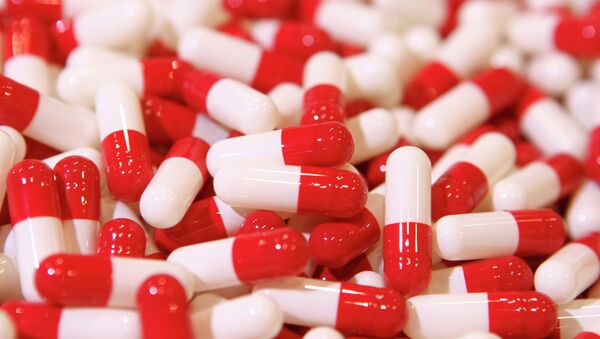In 2013, the Centers for Disease Control and Prevention released a report stating that at least 23,000 people die each year as the result of antibiotic-resistant infections.
And last year, the World Health Organization warned that, unless a drastic change occurred, the world sometime this century could enter a post-antibiotic era "in which common infections and minor injuries can kill."
"Bad Medicine," a report released Wednesday by watchdog group Sum Of Us, calls out pharmaceutical giants for their complicity in the dangerous dumping of drug waste, which contributes to antibiotic resistance.
Among those detailed is Pfizer, a multinational corporation which has sourced antibiotics from a Chinese factory that "stands accused of discharging pharmaceutical waste into the environment and numerous other manufacturing deficiencies," the report states.
As Sarah Lazare, of Common Projects, notes: "Pollution from the dumping of pharmaceutical raw materials is a serious problem, because it releases antibiotics into the environment – a factor behind the rise of antimicrobial resistance."
The study also connects one of the world's largest generic drug manufacturers, McKesson, which owns several European brands, and Indian company Aurobindo, which sources from at least four polluting Chinese factories.
Israeli company Teva has direct ties to three Chinese companies that "have been in the Chinese media spotlight for various offenses including improper waste management and the release of noxious chemicals," the study states.
Paul Ferris, campaign director for SumOfUs.org, stated in a release: "This is a huge problem with a simple solution: Pharmaceutical companies must reveal where they source their antibiotics from and stop buying from polluting factories."
"Good environmental stewardship and health are intrinsically linked — dumping antibiotics in the environment could be harming the health of everyone on this planet."





